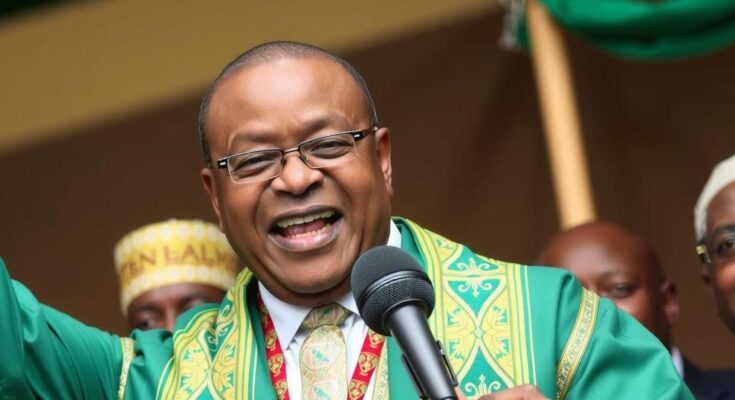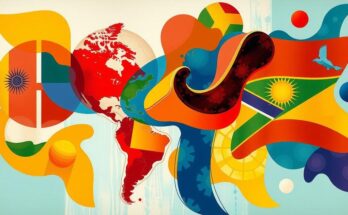John Dramani Mahama won Ghana’s presidential election, signaling a shift in voter sentiment against the ruling NPP due to economic frustrations. Mahamudu Bawumia conceded defeat, acknowledging the people’s call for change. The election was marked by Mahama’s significant comeback after previous losses in 2016 and 2020, amidst a backdrop of economic turmoil including inflation and currency devaluation. Mahama’s supporters celebrated his victory, which aims to address ongoing financial challenges in the country.
John Dramani Mahama, the former President of Ghana, has achieved a significant electoral victory, marking his return to power amid a challenging economic landscape. This recent election, which saw the New Patriotic Party (NPP) concede defeat, was largely influenced by dissatisfaction with the current administration’s handling of economic issues, including escalating living costs. Mahama’s victory confirms a shift in voter sentiment and the desire for change in leadership.
Following the election, Mahamudu Bawumia, the NPP candidate and Vice President, accepted defeat swiftly, recognizing the collective call for change expressed by the electorate. He stated, “The people of Ghana have spoken, the people have voted for change at this time and we respect it with all humility.” This sentiment echoed the frustrations of many citizens regarding the economic hardship faced during the NPP’s eight-year tenure under President Nana Akufo-Addo.
This election was Mahama’s third attempt to reclaim the presidency, having previously lost in 2016 and 2020. His campaign capitalized on widespread public discontent caused by high inflation, currency devaluation, and economic turmoil that plagued the nation in recent years, leading to a $3 billion International Monetary Fund (IMF) bailout. Official party estimates suggested Mahama received 56.3% of the votes, while Bawumia secured 41.3%, highlighting a decisive preference for the opposition party, the National Democratic Congress (NDC).
Despite the clear electoral outcome, Mahama has yet to publicly address supporters. However, he confirmed the receipt of a congratulatory call from Bawumia regarding his “emphatic victory”. In a nation known for its democratic stability, the past electoral cycles have consistently seen power alternating between the two dominant parties, the NPP and the NDC. Voter frustration with the government’s economic performance significantly influenced this election, presenting Mahama with an opportunity for a major political comeback.
The recent electoral developments in Ghana are set against the backdrop of an extensive economic crisis that has severely impacted the nation. The current administration, led by the New Patriotic Party (NPP), has faced criticism due to high inflation rates, currency depreciation, and contentious financial policies. These challenges culminated in a substantial $3 billion bailout from the International Monetary Fund (IMF), underscoring the pressing fiscal challenges the country has encountered. In this context, John Dramani Mahama, who previously served as the President from 2012 to 2017, sought to reclaim power amid widespread public discontent with the NPP’s management of the economy.
The election of John Dramani Mahama marks a pivotal moment in Ghana’s political landscape, reflecting the electorate’s growing frustration with the ruling party’s inability to effectively navigate economic crises. As Mahama prepared for his third term, the swift concession by NPP candidate Mahamudu Bawumia signals a significant shift in Ghana’s political dynamic. With a legacy of prior challenges and ongoing economic turmoil, the new administration will be tasked with addressing the pressing concerns of Ghanaians dissatisfied with the current economic state, seeking to restore confidence in governance and improve living conditions for all citizens.
Original Source: www.theguardian.com




